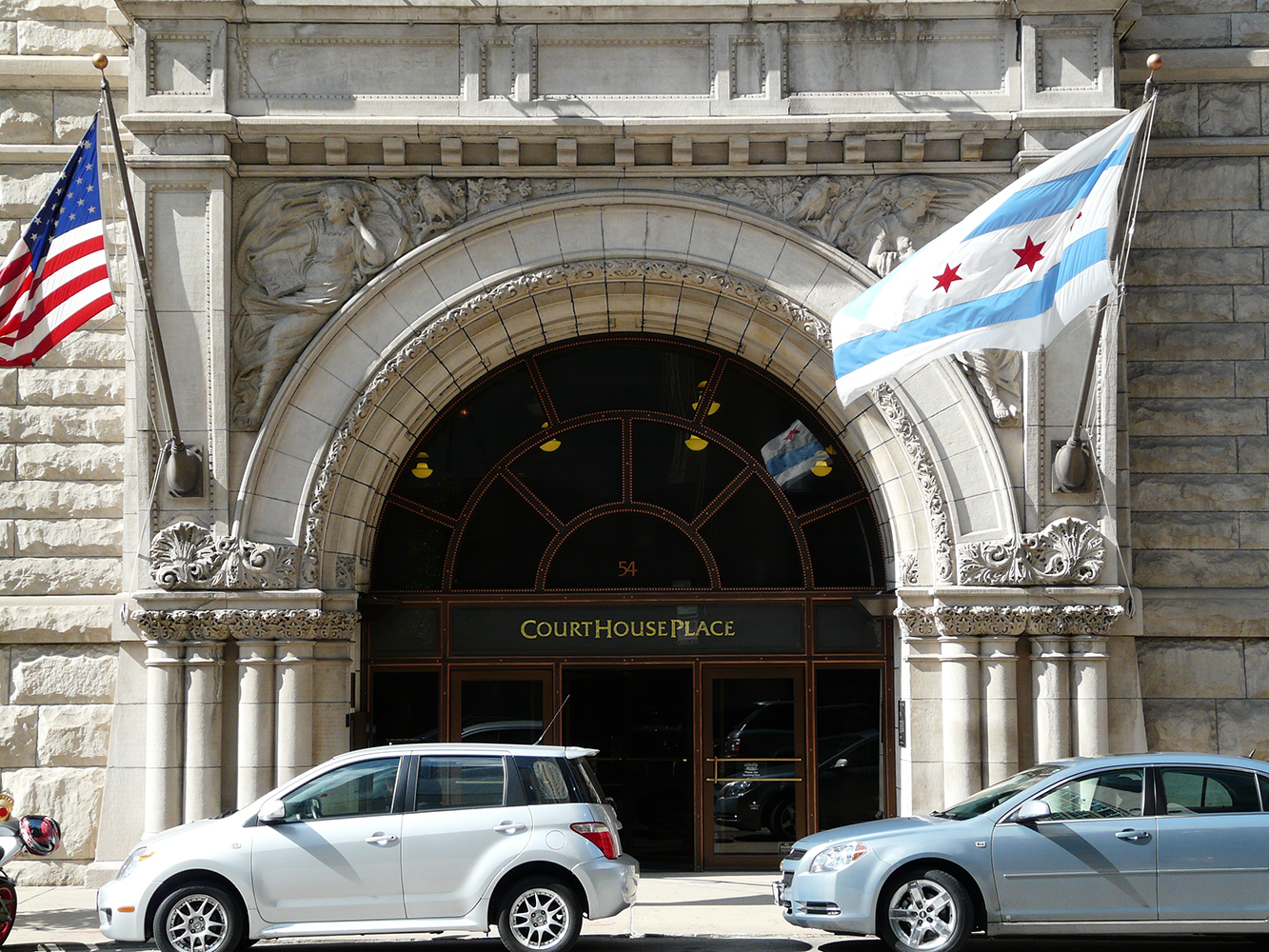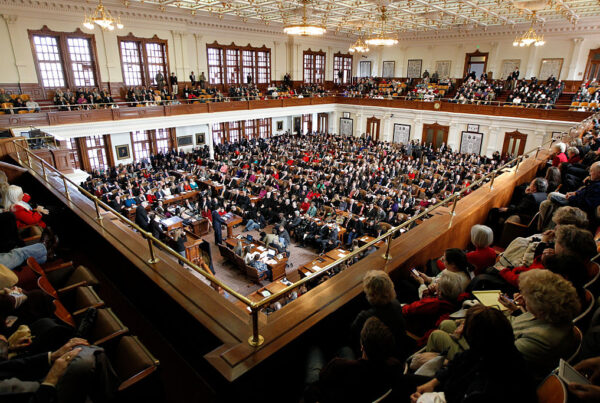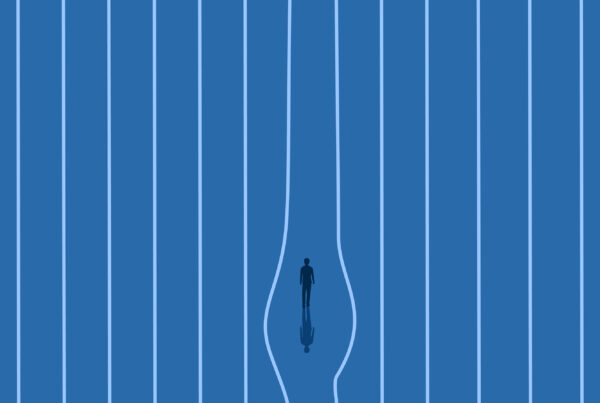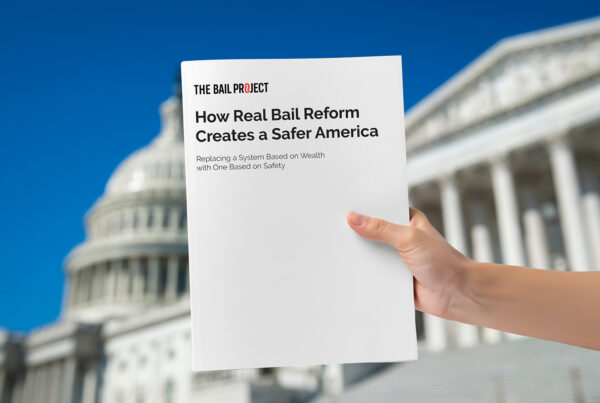This week marks one year since the Pretrial Fairness Act went into effect in Illinois, making it the first state to abolish cash bail. In the year since, people in Illinois have avoided countless time away from their jobs and families because their bank accounts no longer determine their freedom. This was a groundbreaking move to take money out of justice, and it’s time for the rest of the country to follow.
When we talk about cash bail, what we’re really talking about is wealth-based detention. Under the current system, a person waiting for their day in court is typically only allowed to return home before trial if they can afford to put down a deposit. This has created two tiers of justice: one for the wealthy, and one for the rest of us.
Thanks to this unfair system, the wealthy can often walk free and await trial at home, no matter how serious the accusation. While people like Robert Durst, Jeffrey Epstein and Bernie Madoff can pay millions to buy their freedom, most Americans cannot afford a $1,000 emergency expense. Those unable to pay bail are kept in jail without any conviction. Instead of innocent until proven guilty, this means jail until proven wealthy.
Take Ashley from Oklahoma, a client of The Bail Project who was eight months pregnant when she was arrested in 2021. She accidentally missed a court date after being charged with a nonviolent misdemeanor. Her bail was set at $11,500, but because she couldn’t afford it, she was placed in a filthy cell and forced to sleep on the concrete floor without a mattress. After three weeks in jail, she lost her apartment and her job as a store manager. She slept in her car before and after the birth of her daughter.
Then there’s Christopher from Missouri. After turning down a scholarship to Vanderbilt University, he enlisted in the Marine Corps and served during the Gulf War. As years passed, he developed post-traumatic stress disorder and struggled with addiction. When pulled over during a traffic stop, he was arrested for alleged possession of a controlled substance. His bail was set at $1,000, but because he couldn’t afford it, he sat alone in jail for six weeks. He lost his job as a house painter and his PTSD worsened, only for the charges to later be dropped and the case dismissed.
The way Ashley and Christopher were treated exposes a central truth: Wealth, not safety, too often determines who walks free and who remains in custody. Working people shouldn’t have to depend on family and charities like The Bail Project to cobble together enough money for them to return home. So, how do we ensure freedom is actually free?
In 2021, Illinois passed the Pretrial Fairness Act. When it went into effect last September, it ended wealth-based detention. The law no longer allows a person to pay money to secure their release before trial, replacing that system with individual assessments that enable courts to better review each case.
Now, a person in Illinois can only be held in jail before trial if they are charged with a specific offense—or if a prosecutor requests a hearing and a judge determines the person poses a flight risk or threat to public safety. Courts can also assign conditions of release, such as no-contact orders or weapons restrictions. These changes ensure that safety is the main factor in holding someone until their trial.
This common-sense reform is also a life-changing one. Before, an average of 230,000 people were placed in pretrial detention in Illinois every year. And every year, these people collectively paid more than $140 million in bail. Now, people awaiting trial can return to their homes and jobs until they get their day in court.
Critics argued this reform would result in an increase in crime—they were wrong. Since Illinois ended wealth-based detention, crime rates have gone down. In Chicago, homicides dropped by 9%, robberies by 8% and carjackings by 18%.
Critics also argued people would be less likely to show up for their trial, but Illinois judges have issued failure-to-appear warrants in only 5% of 28,416 court dates. This is consistent with what we have seen across the country at The Bail Project: Our 31,000 clients have returned to 91% of their court dates, without any of their own money on the line.
Beyond Illinois, more than 20 cities have safely minimized the use of cash bail over the last decade. Currently, Michigan lawmakers are considering a package of legislation that has the potential to dramatically improve the pretrial system. State legislators in Colorado, California, Connecticut, New Hampshire and Vermont have also recently introduced meaningful reforms.
It is time for us to demand more from our justice system. Illinois’s bold move is a blueprint for the nation in creating a fairer system, one where we can ensure public safety while taking money out of justice. Rich or poor, we are all entitled to equal justice.
This op-ed originally appeared in Route-Fifty. Image: flickr Stephen Hogan CC BY 2.0
Thank you for reading. The Bail Project is a 501(c)(3) nonprofit organization that is only able to provide direct services and sustain systems change work through donations from people like you. If you found value in this article, please consider supporting our work today.












